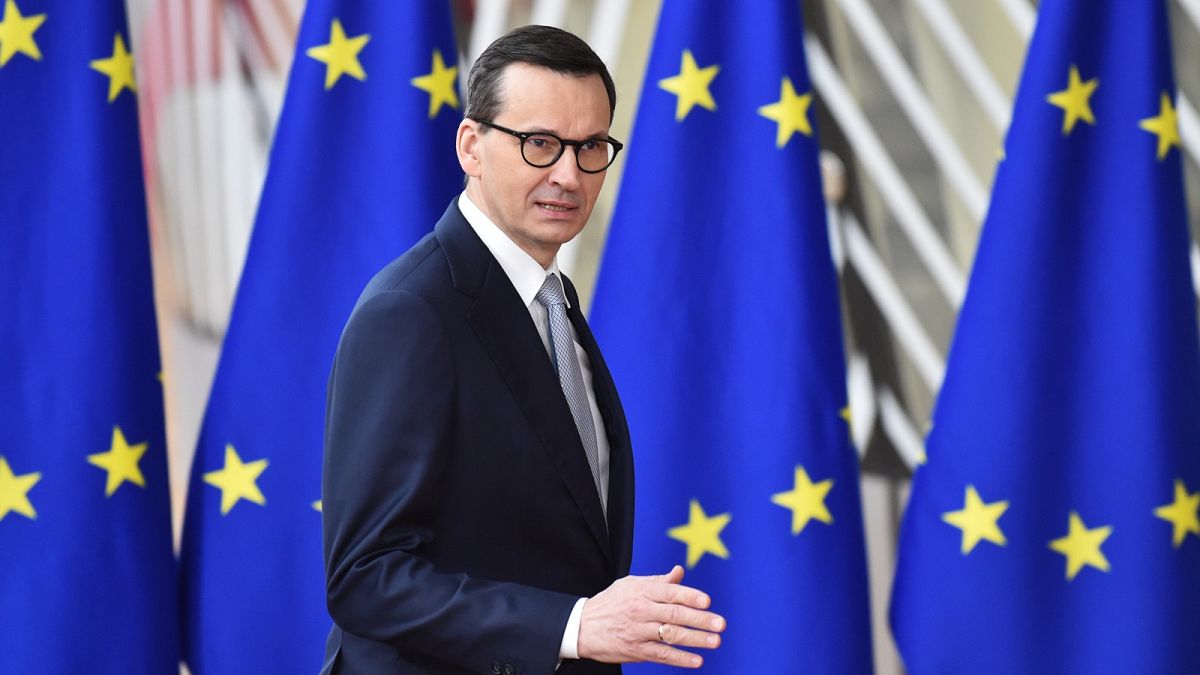Poland and Hungary object to a new deal to revamp the European Union's rules on the reception and relocation of asylum seekers.
The deal, the first breakthrough of its kind in years, was struck earlier this month during a meeting of home affairs ministers and still needs to be negotiated with the European Parliament before entering into force.
The rules were endorsed by a qualified majority, meaning Poland and Hungary, the only two member states who opposed the final draft, were unable to exercise their veto power, as they have previously done in matters of taxation and foreign policy.
This triggered a furious response from Polish Prime Minister Mateusz Morawiecki and Hungarian Prime Minister Viktor Orbán, who brought their grievances to a two-day European summit taking place in Brussels.
After a long day of discussions on Thursday that stretched into the night, Morawiecki and Orbán blocked the summit's conclusions on migration, forcing leaders to resume the topic on Friday.
"We ran into quite a lot of difficulties on the issue of migration," said Leo Varadkar, the Irish prime minister. "It is possible the meeting won't be able to come to conclusions on migration, which would be unfortunate."
His Latvian counterpart, Krišjānis Kariņš said that while there was "broad" support for addressing the external dimension of migration – that is, cooperation with neighbouring countries to stem the number of arrivals –, the debate on the "internal aspect" was being influenced by the "baggage" from the past.
**"Personally, I would like (conclusions on migration). But it's not so clear whether we'll have them or not," Kariņš said.
**
Estonia's Kaja Kallas also spoke of the "bitterness that comes from previous discussions" as one of the reasons preventing an agreement but said the agreed-upon overhaul would not be altered by the summit's outcome.
"If you just say 'no' to everything and everybody else tries to compromise, that doesn't really work out," Kallas told reporters.
In a bid to break the impasse, Italian Prime Minister Giorgia Meloni, who is a key supporter of the migration reform, held a trilateral meeting with Morawiecki and Orbán on Friday morning.
Morawiecki and Orbán want to include an explicit reference to the word "consensus" in the final text, believing the tweak would guarantee that future decisions related to migration will be approved by unanimity.
However, according to the EU treaties, migration issues are adopted by a qualified majority, the same voting rule that applies to climate action, digital regulation and the internal market.
"That is why we cannot agree to such conclusions and that is why we remain of the opinion that the best solution here is a referendum," Morawiecki said on Friday morning, before heading into the meeting.
Morawiecki and Orbán are also demanding a clarification to ensure compliance with the new migration rules would be "voluntary," something that runs contrary to the proposed regulation.
Since the deal was reached earlier this month, the two leaders have falsely depicted the reform as a "forced" admission of migrants. In fact, the overhaul is based on the concept of "mandatory solidarity," not mandatory relocation, and offers all member states three different options to collectively address the challenge:
- Accept a number of relocated asylum-seekers.
- Pay €20,000 for each rejected applicant.
- Finance operational support, such as infrastructure and personnel.
Speaking to Polish media in Brussels, Morawiecki depicted the €20,000 payment as a "fine" and a form of "coercion."
"A Europe of secure borders is not for illegal immigration, it is not for imposing financial penalties," he said. "It is not for abandoning the principle of unanimity."
